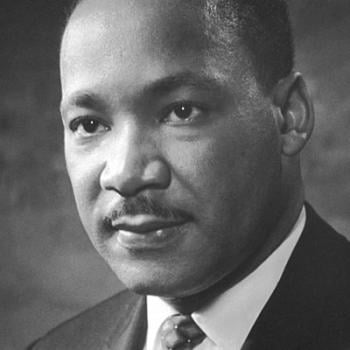
I’ve written a number of posts in the past addressing the evangelical theological movement known as “open theism.” Last year I wrote a general evaluation of open theism from a Catholic perspective. Some years ago, I wrote a series of blog posts on the theology of Greg Boyd, one of the major open theists. I’ve been intending for a while to write about Tom Oord, whose work I find particularly interesting and challenging. He’s a bit different from other open theists such as John Sanders inasmuch as he’s much more influenced by process theology and is willing to challenge conventional ideas about God a bit more radically. And yet in doing so, paradoxically, he is in some ways closer to traditional theology as I understand it than other open theists are. (I’ll get to that later.)
Oord has drawn a lot of fire for his views, losing his job at Northwest Nazarene University and, more recently, being expelled from the Church of the Nazarene. (The latter was for his views on LGBTQ inclusion, not open theism per se.) That alone makes him someone worthy of careful and respectful attention. Obviously people with bad theology can still be persecuted. Persecution isn’t a guarantee of theological merit. But undergoing persecution for one’s views does give an additional reason to take those views seriously, apart from their inherent merits.
Obviously as Catholic, I belong to a church that has frequently excommunicated people and in the past even called on the civil government to punish them, sometimes with death. So I’m in no position to point fingers at the Nazarenes here. But I think Erasmus was right in his initial response to Luther: if people are theologically wrong, they need to be refuted, not simply silenced. I don’t imagine that I can refute Oord decisively, and many of his views I have no desire to refute. But since I’m interested in the questions he raises I want to provide him and other open theists with as thoughtful and respectful a dialogue as I’m capable of.
I’m going to start by describing the core of his theology as laid out in the two works of his I’ve read: The Uncontrolling Love of God and The Death of Omnipotence and the Birth of Amipotence. I’ll be focusing on the second book which is fresher in my mind, but the two books complement each other and I recommend both. Then I’ll discuss my major disagreement with him, which is his rejection of traditional ideas about the fundamentally mysterious nature of God’s being and action.
Omnipotence and amipotence
All open theists believe that God is time-bound more or less as we are. All of them believe that God does not know what will happen in the future with certainty, when that depends on the free choices of creatures. However, Oord goes farther than the others I’ve read in arguing that God cannot compel creatures in any way. In Uncontrolling Love Oord argues that God’s nature is “essential kenosis”–self-emptying love. Many other open theists believe that God could have created a world without free beings, a world God could fully know and control. Oord thinks not. God’s nature of uncontrolling love would make it impossible for him to do any such thing.
In Death of Omnipotence, Oord argues that we should stop using the word “omnipotence” for God. He thinks that the term has become so qualified as to lose its meaning. This is true not just for Oord’s conception of God but even, he argues, for what most people would think of as the “traditional” or “orthodox” conception of God. Pretty much all theologians, even Calvinists (who typically stress divine sovereignty), qualify omnipotence in a host of ways. Theologians fairly consistently agree that God’s nature makes it impossible for him to lie and to do other evil things, for instance. Oord’s theology of uncontrolling love, of course, adds many additional reasons to avoid the term “omnipotent.”
Instead, Oord argues, we should speak of God as “amipotent” (a term Oord has coined). God’s power is the power of love, and only the power of love. This power will eventually triumph over evil. But God cannot control how and when creatures respond to God’s love. God’s power is a patient power, the power of witness and persuasion and beauty. God is constantly present in the world moving us to love, but all of creation (not just humans) has the ability to cooperate with or resist God’s love.
Is mystery a cop-out?
Like all the open theists I’ve read, Oord is very suspicious of appeals to mystery in theology. Traditionally, Christian theologians have spoken of God in both “kataphatic” and “apophatic” terms. That is to say, we have affirmed that God is meaningfully like creation in many ways (kataphatic) but also radically unlike creation, transcending it infinitely (apophatic).
Different theologians have emphasized one side or the other. Thomas Aquinas is, to my mind, as “kataphatic” a theologian as one can be and be fully orthodox. He affirms that we can meaningfully speak of God through analogy with creation, but that nothing we say about God is “univocally” true of both God and creatures. That is to say, what it means for God to be good or wise or powerful is not going to be identical with what it means for a creature. Our language for God always derives from our observation of creatures and thus never applies exactly to God. God’s attributes are related to their creaturely counterparts in three ways: God’s attributes are greater than the creaturely counterparts, they are the cause of those creaturely attributes, and they are the opposite of the negations of the creaturely attributes.
So God is good first of all because he causes the goodness of creatures, secondarily because the goodness of creatures genuinely reflects God’s nature though in an imperfect way, and thirdly because God is entirely free from what we call “evil” in creatures. The same would be true, for Aquinas, with power: God is the source of all creaturely power, God’s power is, to so speak, “more powerful” than human power, and God is free from weakness of any kind.
Oord grants in principle that our language about God needs to be both kataphatic and apophatic. He agrees that God is both like and unlike us. He criticizes what he calls “absolute apophatic theology” (Death of Omnipotence, 68-69), on the reasonable grounds that if we can’t say anything about God at all then there is no basis for doing theology. But in fact “absolute apophatic theology” is a straw man. The most famous Christian apophatic theologian, Pseudo-Dionysius, has room for both apophatic and kataphatic theology, but with the former having priority.
Where to play the mystery card?
To my mind, Oord’s account of God is far too confident in the adequacy of human conceptual and linguistic categories to explain God. Oord typically begins with a commonsense definition of a concept, drawn from how that concept normally applies to creatures, and then simply declares that this concept must also apply to God. Maybe the most important example of this is Oord’s discussion of divine action on pp. 128-29 of Death. Oord says that God acts “somewhat like creatures act,” but in fact he doesn’t give any meaningful way in which divine action differs from creaturely action except that God doesn’t have a “localized body.”
Oord is so committed to God’s being “like us” that he suggests that God must have some kind of “material dimension” (133), though not one that can be perceived by the senses. This is one example (the only one that immediately comes to mind, though there may be others I failed to notice) where Oord embraces a kind of apophaticism. But to me this seems an extremely odd place to play “the mystery card” which Oord rejects so scornfully elsewhere.
Classical Christian theology begins by affirming God’s fundamental “otherness,” claiming that what it means for God to exist and to act is always going to be more unlike our modes of existence and action than like them. Oord rejects this because he thinks it makes meaningful theological analysis impossible. But he winds up with a “material dimension” that lacks any of the normal properties of materiality. How is this an improvement?
An apophatic path to the same goal
In spite of this and other disagreements, I agree with Oord’s fundamental contention that God’s nature should be defined primarily in terms of love. Oord’s theology is a helpful challenge to those of us with more traditional theological commitments, because his rejection of many “classical” affirmations about God allows him to create a concept of God driven entirely by the premise that “God is love.” He doesn’t have to “balance” the claim that God is love with apparently contradictory evidence, because he simply jettisons those parts of a traditional concept of God that seem incompatible with love (including the claim that God is omnipotent).
I believe that, in fact, traditional Christian apophatic/analogical theology offers a better path to the same goal. In the approach of theologians such as Dionysius and Aquinas, the “names” we apply to God all come from creatures and thus none of them fully “fits.” But it’s quite conceivable on these premises that some fit better than others. We have Biblical warrant for believing that love is the creaturely “name” that fits God best (1 John 4:8). In John Wesley’s terms (quoted by Oord), love is God’s “reigning attribute.”
The weakness of the Cross
We also have good reason to believe that power, on the other hand, is the creaturely “name” that requires most qualification before we apply it to God. Paul proclaims in 1 Corinthians 1 that God’s power and wisdom are made known in the “foolishness” and “weakness” of the Cross. If the Cross is the manifestation of God’s power, then we have every reason to think that God’s power is particularly unlike what we call “power” in creatures. And experientially, this makes sense. Power, as exerted by creatures over each other, is typically about coercion. It is often manipulative and exploitative.
Here’s where I think Aquinas and other traditional theologians (particularly, but not only, in Western Christianity) can be criticized. Aquinas does often speak as if God’s power is very much like that of an earthly ruler but even greater. Oord is quite right to say that omnipotence as construed in much traditional Christian thought has buttressed oppressive forms of human power. Whatever God’s “power” means, it is far more unlike than like the kind of power that Vladimir Putin is seeking to exercise over Ukraine or Benjamin Netanyahu over Gaza.
Is omnipotence dead?
So should we simply stop speaking of omnipotence, as Oord argues? Even before reading the book (though I have been aware of Oord’s arguments for years in some form so I wouldn’t rule out his influence) I had stopped listing omnipotence as a basic part of my understanding of God in discussions with non-believers. As Oord argues at length in Death, no one in fact believes in omnipotence without serious qualifications. For Oord, that’s an obvious oxymoron, since “omnipotence” would seem to be a concept that by definition can’t be qualified or limited.
I’ve run out of space to explain why I disagree with this (again, it has to do with my “classical theist” commitments which Oord does not accept). I think a case can be made for keeping the concept once we establish what we mean when we speak of God’s “power” in the first place. But in a “commonsense” discussion with people who don’t share classical theist commitments, I think it’s probably best to admit that we do not believe that God is what most people would think of when they use the word “omnipotent.” And I entirely agree with Oord that whatever word we use for God’s power, we must be clear that God’s power is always the power of love.











